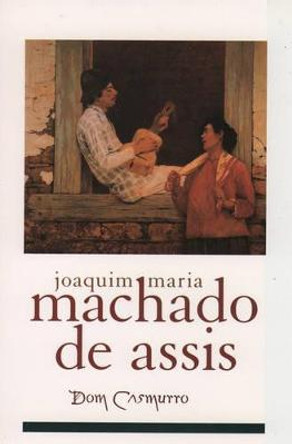Description
Widely acknowledged as the most important novelist to have written in Latin America before 1940, Machado had a surprisingly modern style. Schwarz notes that the unprecedented wit, sarcasm, structural inventiveness, and mercurial changes of tone and subject matter found in The Posthumous Memoirs of Bras Cubas marked a crucial moment in the history of Latin American literature. He argues that Machado's vanguard narrative reflects the Brazilian owner class and its peculiar status in both national and international contexts, and shows why this novel's success was no accident. The author was able to confront some of the most prestigious ideologies of the nineteenth century with some uncomfortable truths, not the least of which was that slavery remained the basis of the Brazilian economy.
A Master on the Periphery of Capitalism will appeal to those with interests in Latin American literature, nineteenth century history, and Marxist literary theory.
A translation of Schwarz's study of the work of Brazilian novelist Machado de Assis (1839-1908)
About the Author
Roberto Schwarz, one of Brazil's foremost literary and cultural critics, is the author of Misplaced Ideas: Essays on Brazilian Culture and Duas Meninas. John Gledson is Emeritus Professor of Brazilian Studies at the University of Liverpool. He is the author of two books about Machado de Assis and was the translator of Misplaced Ideas, the only other English translation of a work by Schwarz.
Reviews
"A brilliant and penetrating analysis of Machado's Memorias Postumas de Bras Cubas. This is the kind of reading that transforms one's understanding of the novel. After reading Schwarz, it is impossible to see Machado in the same light as before. Exemplary of what literary analysis can and should be, this seminal study transcends its focus on Brazilian literature and becomes a model for literary critics. "-Randal Johnson, University of California, Los Angeles
"This is a masterpiece of criticism. The coherence of Schwarz's perspective and the clarity with which he elaborates the economic and cultural insights that form his dialectical approach to literature make his study a paradigmatic one for theoretical enterprise. By concentrating his interpretive talents on Machado's style, Schwarz also illuminates a question that has puzzled many present Machado readers: Why do we find him so satisfylingly contemporary?"-Leslie Damasceno, Duke University
Book Information
ISBN 9780822322399
Author Roberto Schwarz
Format Paperback
Page Count 232
Imprint Duke University Press
Publisher Duke University Press
Weight(grams) 544g







